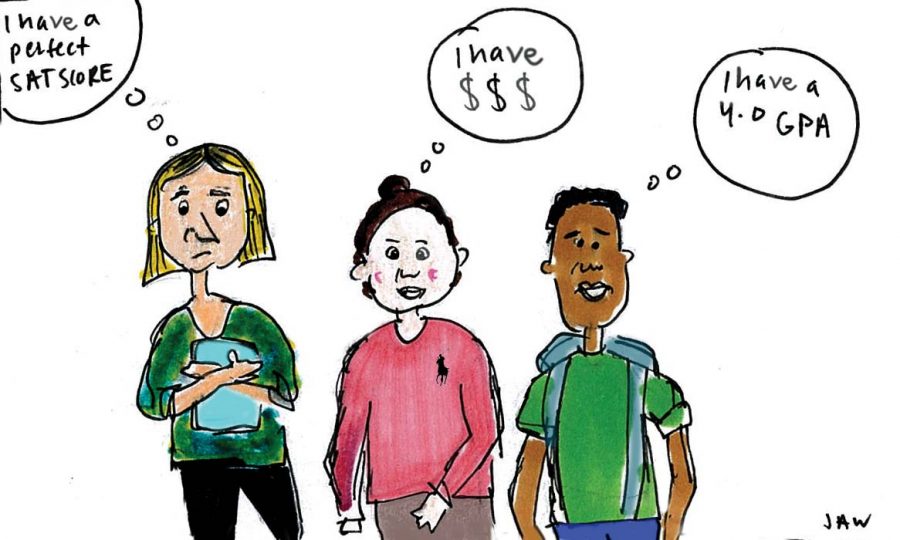The Price of Admission
Many universities today are need-blind, which means they refuse to account for the financial situation of applicants when deciding whether to offer admission to their school. However, money clearly plays a significant part in increasing a student’s chance of admission, as it makes possible the preparation that goes into formulating a competitive college application.
While the recent college admissions scandal involving Lori Lough- lin and other rich, famous parents is an extreme case, it does bring up the question: how important is having money when it comes to being admitted by an elite college?
Princeton has the highest proportion of students on financial aid in the entire Ivy League – a whopping 60%. And while Princeton reports that their average aid package is $56,000, there are students who receive more, and many who receive much, much less. That still means 40% (and in most Ivy Leagues approximately 50%) of students pay the full $73,450 for tuition and housing.
While money plays a role in determining who is able to pay for elite colleges, it plays an even larger role in
getting accepted. Money buys better SAT scores (through private tutoring and the opportunity to retake the test multiple times), more opportunities to visit schools in person, better extracurriculars, private high schools with extensive college counseling, etc. Unless colleges do thorough investigations on every candidate in order to eliminate these differences, this issue will remain crucial.
But should it? Yes, education is the main point of colleges, but it would be naïve to think money isn’t far behind. Many colleges are for-profit. Most elite colleges are non-profits, but they still make a lot of money and want to keep it that way – Harvard’s endowment is $39 billion with a capital “B.” Much of that money goes towards the university’s operating budget, which means financial aid for underprivileged students.
The recent college scandal came as a surprise to many. But why? Parents have been donating buildings or paying someone to write their child’s essays for them for decades.
And while this might also come
as a surprise, I don’t disapprove. Every person whose parent donates money or a building to a school allows another student’s tuition to be subsidized. Even at Hotchkiss, without donations from alumni and parents, our tuition would be much higher and many current students would not be here.
So, while this may seem unfair, at least this money is benefitting
someone else, whereas other unfair advantages in the admission process such as connections, legacies, and sports benefit one person and one person only.
And now we are right back to where we started, where colleges let rich kids get in to “make space” for disadvantaged kids. I’m ambivalent about this fact, because it doesn’t feel right that money plays a major role in
getting kids into elite schools when
they don’t have any inherent superiority. Yet if that didn’t happen, would kids who would never normally have the opportunity to attend still be able to go? I don’t know.






